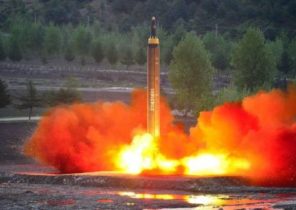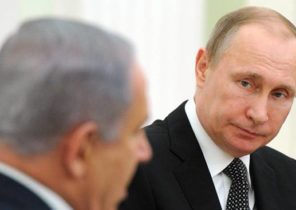
Such unity was not observed for a long time. When Ministers of the countries — members of OPEC a few days ago from all over the world arrived in Vienna, the most difficult questions facing them was already solved. Many months of negotiations, visits, conferences and informal meetings had one goal in mind: oil production should remain limited for at least another six months, and not only until the end of June, which included the previous agreement. By the beginning of the OPEC conference in the Austrian capital, however, there was no doubt that the representatives of 24 countries gathered there in one form or another will be able to agree on this issue.
The discussion was devoted to a question of how long restrictions should remain in force. By noon, the participants agreed on the term of nine months. And still, they want to cut production to 1.8 million barrels per day (one barrel equals approximately 159 liters). Now quotas are valid until March 2018 and should cover the oversupply in the oil market and contribute to the reduction of global stocks to the average level in five years. So far this goal has been elusive. The extension of the limits of production until the end of March — “very reliable and almost guaranteed option to achieve this,” said the oil Minister of Saudi Arabia Khalid al-falih.
However, on Thursday, the markets punished him for lying. The price of WTI fell again by five percent significantly below $ 50. Apparently, investors who are investing in oil contracts, expecting the extension of quotas for a longer period.
Exporters cut production for another nine months
For a long period of excess supply combined these 24 countries at the end of November last year. By the time for the past few years, manufacturers in Texas, the Persian Gulf and Siberia produces more oil than processed refinery and consumption of cars and planes. The reserves of “black gold” reached its historical maximum. When the summer of 2014, prices fell for the first time, check bounce happens, they remained too low for exporters level, which time have lost income.
Few years, the OPEC countries argued about the correct response to excess supply — until last year, at the initiative of Saudi Arabia has not changed the strategy: if, together with them will act sufficiently significant number of countries outside the cartel, then all together they will be able to limit the amount of production storage tanks will be emptied faster, and the market is the most important fuel in the world will find its equilibrium again.
They managed to persuade enough supporters of this idea, and to the astonishment of the whole world, an agreement was reached. How fragmented was the OPEC countries until, so subtly worked their negotiators, who managed to convince of the need to reduce production to countries such as Russia, Mexico and Azerbaijan. Oil prices again rushed up. Production in the OPEC countries was reduced by 1.2 million barrels per day, and in the countries outside the cartel, to 600 thousand barrels.
Pressure due to excess supply was quite large. Because since 2004, according to the U.S. office for energy (EIA), the countries-members of the cartel earned on oil exports much more than in 2016. This pressure was felt by all exporters, when prices grew again, their financial status has improved.
The most surprising thing that has happened in recent months was the fact that most countries do adhere to the agreements, and not increased production volume. Almost no one has been convicted of dishonest actions.
Thanks to the diplomatic efforts of OPEC members, a new self-esteem. In the beginning of the month, al-falih promised, speaking in Kuala Lumpur, utmost effort will be made to balance the oil market — “come what may”. He repeated Thursday in Vienna. This choice of words is not accidental: “At any cost”, said the head of the ECB Mario Draghi (Mario Draghi) in 2012. Then he also promised that the European Central Bank will do everything possible to save the Euro. Now, in the same tone says al-falih, the most powerful of all the energy Ministers of the OPEC — just a year after being elected to his present position — and thereby equates the organization to the Central banks.
Risky maneuvers OPEC
Here it becomes visible the vanished power of the market. Since the 1980s, the years OPEC has been losing its market share, behind their developed countries and new competitors. And when the United States again turned in one of the largest oil producers in the world, the impact of the cartel has decreased even more. In this regard, the goal now is not just a direct price control, but the control output to stabilize the market.
But these maneuvers are risky, and oil exporters had to feel it pretty soon. Producers of shale oil in the United States only and waited, when the prices will rise. After the crash hundreds of companies involved in extraction and sale of shale oil went bankrupt; many others were “head over heels” in debt and no longer had the opportunity for further investment. Thus, the volume of production, in General, decreased.
However, earlier this year, the United States back, but still faster than many expected. Within seven months, American companies have increased daily production by 800 thousand barrels, thereby offsetting more than half of the reduction in production from OPEC countries. According to estimates by EIA, by the end of the year, production in the U.S. will reach 9.9 million barrels per day. It will be a new record.
But not only because of the agreement from 2016 was not enough to get rid of surplus oil on the market. In the face of Libya, and Nigeria are two important manufacturer from members of OPEC continue to increase production is for them an exception was made due to the difficult political and economic situation. These circumstances force exporters to have patience and continue to hope that not all competitors will be able to take advantage of the opportunity to return to the market and to compensate for the limits on production. American corporations, as far as we can conclude, will act exactly.







